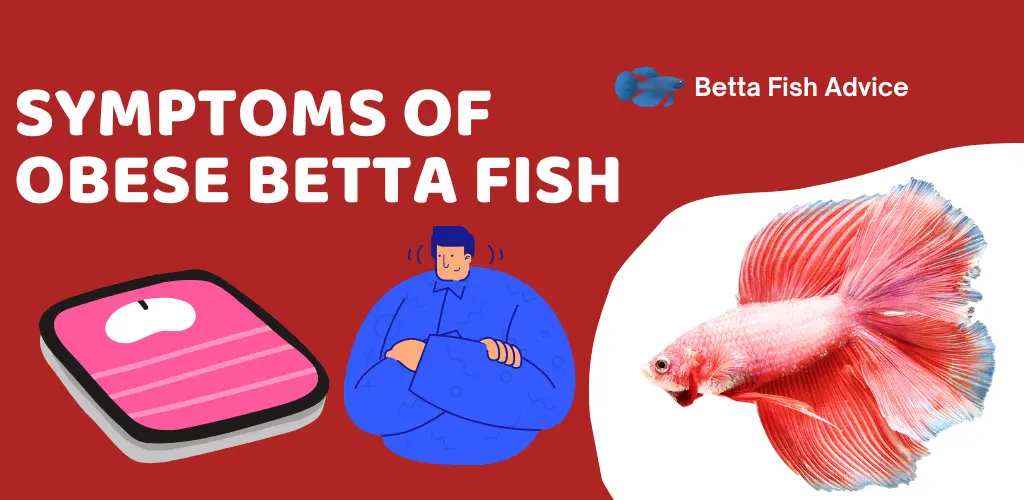Betta fish, also known as Siamese fighting fish, are a highly popular species of freshwater fish known for their vibrant colors and personalities. However, like with any other pet, betta fish can become overweight if they are not properly cared for. In this article, we will delve into the causes of obese betta fish and explore solutions to help prevent or treat this condition.
Can Betta Fish Get Fat?
Yes, betta fish can get fat. Obesity in betta fish is caused by a combination of overfeeding, lack of exercise, and genetics. Overfeeding is the most common cause of obesity in betta fish. Many betta fish owners make the mistake of feeding their fish more than they need, which can lead to weight gain and other health issues. Betta fish need space to swim and explore to stay healthy and active. Fish kept in small tanks or bowls with limited space may not get enough exercise, which can contribute to weight gain.
Some betta fish may be predisposed to obesity due to their genetic makeup, requiring more strict dietary and exercise regimens to maintain a healthy weight. It is important to monitor your betta fish’s weight and overall health to ensure they maintain a healthy weight and to take action if you notice signs of obesity, such as a bulging belly, lack of energy, difficulty swimming, and reduced lifespan.
One study conducted in 2018 found that betta fish fed a high-fat diet had a significantly higher body weight and fat mass than those fed a regular diet. The study also found that the high-fat diet increased insulin resistance and inflammation in the fish. These findings suggest that diet plays a significant role in developing obesity and related health issues in betta fish.
Causes of Obese Betta Fish
Overfeeding
One of the primary causes of obese betta fish is overfeeding. Many betta fish owners make the mistake of feeding their fish more than they need, which can lead to weight gain and other health issues. It is important to understand the proper amount of food needed for your fish and to stick to a consistent feeding schedule.
Lack of Exercise
Betta fish need space to swim and explore to stay healthy and active. Fish kept in small tanks or bowls with limited space may not get enough exercise, which can contribute to weight gain. It is essential to provide your fish with a spacious tank or bowl or to decorate their current tank with plants and other decorations to encourage swimming and exploration.
Genetics
Some betta fish may be predisposed to obesity due to their genetic makeup. These fish may require strict dietary and exercise regimens to maintain a healthy weight. It is important to understand the genetic makeup of your fish and to adjust your care accordingly.
Symptoms of Obese Betta Fish

- Bulging belly: The most obvious symptom of obese betta fish is a bulging belly. This can be caused by a buildup of fat in the fish’s body. It is important to monitor your fish’s belly size and to take action if you notice it becoming too large.
- Lack of energy: Obese betta fish may be less active and have less energy than their healthy counterparts. If you notice your fish becoming lethargic or sluggish, it may signify obesity.
- Difficulty swimming: Overweight betta fish may have difficulty swimming and may struggle to stay afloat. This can be a sign that your fish is carrying too much weight.
- Reduced lifespan: Obesity can lead to various health problems in betta fish, including reduced lifespan. It is essential to take action to prevent or treat obesity to ensure your fish lives a long, healthy life.
Treatments for Obese Betta Fish
Proper Diet
Feeding your betta fish a balanced diet consisting of high-quality, protein-rich food, such as bloodworms, brine shrimp, and daphnia, is essential. Avoid overfeeding, and ensure that your fish gets the proper amount of food for their size and activity level.
Exercise
Providing your betta fish with plenty of space to swim and explore is crucial. This can be achieved by using a larger tank or bowl or by adding decorations and plants to their current tank to encourage them to swim and explore more.
Monitoring
Regularly monitoring your betta fish’s weight and overall health is crucial to maintain a healthy weight. This can be done by checking their belly size and monitoring their energy levels and swimming abilities.
How to Tell if My Betta Fish Is Full?
There are several ways to tell if your betta fish is full. One of the most obvious signs is if your fish stops eating. If your fish is no longer interested in food or spits out food that you offer, it is likely that it is full. Another way to tell if your fish is full is by observing its belly. A betta fish’s belly should be slightly rounded, not overly full or distended. If the belly appears swollen or distended, your fish may overeat. Additionally, you can observe your fish’s behavior; if it is still active and swimming around, it’s not full, but if it’s sluggish or not moving a lot, it may feel full.
Another way to tell if your betta fish is full is by monitoring its poop. A healthy betta fish will produce small, well-formed feces, whereas an overfed fish will produce more feces, and the feces may be softer. If your fish produces more feces than usual, it is likely to overeat.
It’s important to remember that betta fish should be fed small amounts of food 2-3 times a day and not feed them more than they can consume in a few minutes. This way, you can ensure that your fish is getting the right amount of food and not overeating. By paying close attention to your fish’s behavior, appetite, and waste production, you can easily determine if your betta fish is full and adjust its diet as needed.
What If My Betta is Too Skinny?

If your betta fish appears too skinny, it could be a sign of various issues. One potential cause is poor nutrition. Bettas are carnivorous and require a diet high in protein. Make sure you provide them with a high-quality, betta-specific pellet or flake food, and supplement it with live or frozen foods such as brine shrimp or bloodworms. Another possible cause is a lack of appetite, which can be due to various factors such as disease, water quality issues, or stress. To determine if your betta is ill, observe them for signs of lethargy, fin or tail rot, or other physical abnormalities.
Check the water parameters in your tank, including pH, temperature, and ammonia levels, to ensure they are within the appropriate range for bettas. Lastly, ensure your betta has a comfortable and stress-free environment, with plenty of hiding spots and room to swim. If you cannot identify the cause of your betta’s skinny appearance or it does not improve properly, it is best to consult a veterinarian specializing in fish.
How To Prevent Obesity In Betta Fish?
- Balanced Diet: It’s essential to provide them with a balanced diet consisting of high-quality betta pellets, frozen or live food, and occasional treats such as freeze-dried bloodworms. A well-balanced diet provides essential nutrients for their growth and health.
- Feeding Schedule: It’s crucial to avoid overfeeding betta fish to prevent obesity. Overfeeding is a common problem and can lead to health issues like swim bladder disease. It would help if you established a feeding schedule, taking into account the age and size of the betta. It would help if you fed Adult bettas once or twice a day, while you should feed young bettas more frequently.
- Monitoring Food Intake: Monitoring the amount of food bettas eat and adjusting the feeding schedule accordingly is essential. Bettas should not be fed more than they need, as this can lead to weight gain and other health problems.
- Swimming Space: Bettas require adequate swimming space to stay active and healthy. Keeping them in a small container or tank can contribute to obesity and other health problems. A minimum tank size of 2.5 gallons is recommended for bettas, and ensuring they have enough space to swim around is essential.
- Water Changes: Regular water changes are crucial to maintaining proper water parameters, which can help prevent obesity and other health issues. Changing 25-50% of the water weekly is recommended for bettas.
- Water Parameters: Maintaining proper water parameters such as temperature, pH, and ammonia levels is essential for betta health. Bettas thrive in water temperatures between 75-82°F, with a pH range of 6.5-7.5.
- Exercise: Keeping bettas active and entertained is essential to prevent boredom and stress, which can contribute to overeating. Providing them with toys, plants, and other forms of enrichment can help keep them active and to prevent obesity.
Conclusion
Obesity can be a serious problem for betta fish and lead to various health issues. However, with proper diet, exercise, and monitoring, betta fish can maintain a healthy weight and live a long, happy life. Betta fish owners must be aware of the causes and symptoms of obesity to take action and keep their fish healthy. By understanding the causes and finding effective solutions, betta fish owners can ensure that their fish live a healthy and fulfilling life.
By providing a spacious tank or bowl and adding decorations and plants to encourage swimming and exploration, betta fish will have the opportunity to exercise and stay active. Furthermore, consistent monitoring of their weight and overall health is crucial to identify any potential issues early on and make adjustments as necessary.
FAQ
Q: What are the health risks associated with an obese betta fish?
A: An overweight betta fish is at risk for various health issues, including swim bladder disorder, which can make it difficult for them to swim and maintain proper buoyancy. Obesity can also lead to fin and tail rot, increased susceptibility to disease, and shortened lifespan.
Q: How can I help my obese betta fish lose weight?
A: To help your betta fish lose weight, you should first reduce the food you are providing and feed them smaller, more frequent meals. You can also include more protein-rich foods such as brine shrimp or bloodworms in their diet, as these will help them feel full and satisfied. Additionally, ensure your betta has plenty of room to swim by providing them with a larger tank and more space to move around.
Q: Can an obese betta fish return to a healthy weight?
A: An obese betta fish can return to a healthy weight with proper care and management. It may take some time and patience, but with a healthy diet and plenty of exercises, your betta fish can achieve and maintain a healthy weight.
Q: Are there any specific foods that can help my betta fish lose weight?
A: High-quality, protein-rich foods such as brine shrimp and bloodworms can help your betta fish feel full and satisfied while providing them with the necessary nutrients for weight loss. However, you should also avoid overfeeding and stick to a regular feeding schedule.





Pingback: How Long Can A Betta Fish Live Out Of Water? - Betta Fish Advice
Pingback: 7 Difference Between Black Mamba And Black Samurai Betta - Betta Fish Advice
Pingback: Identifying And Treating Gill Flukes Betta: 5 Ways - Betta Fish Advice
Pingback: Betta Fish Stomach Explode: Causes, Treatment And Prevention
Pingback: Will Betta Fish Kill Mollies: Explained - Betta Fish Advice
Pingback: Why Is My Betta Fish Tank Slimy: Answered - Betta Fish Advice
Pingback: Can Betta Fish Eat Ants? Explained - Betta Fish Advice